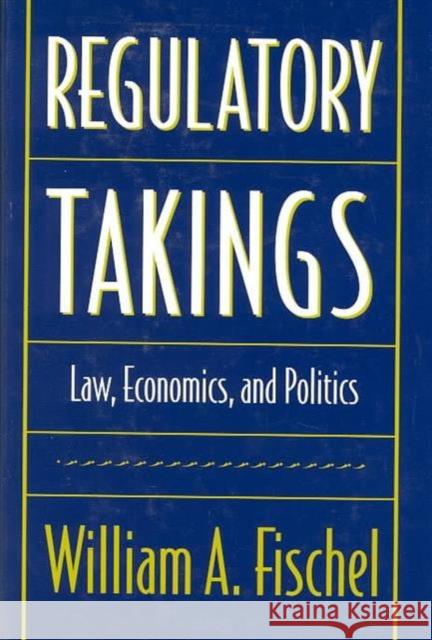Regulatory Takings: Law, Economics, and Politics » książka
Regulatory Takings: Law, Economics, and Politics
ISBN-13: 9780674753884 / Angielski / Twarda / 1998 / 432 str.
Are rent controls and zoning regulations unconstitutional? Should the Supreme Court strike down the Endangered Species Act when its administration interferes with the use of private property? These questions are currently debated under the doctrine of regulatory takings, and William Fischel's book offers a new perspective on the issue.Regulatory Takings argues that the issue is not so much about the details of property law as it is about the fairness of politics. The book employs jurisprudential theories, economic analysis, historical investigation, and political science to show why local land use regulations, such as zoning and rent control, deserve a higher degree of judicial scrutiny than national regulations. Unlike other books on this topic, Regulatory Takings goes beyond case law to buttress its arguments. Its reality checks range from reviews of statistical evidence to local inquiries about famous takings cases such as Pennsylvania Coal v. Mahon and Lucas v. South Carolina Coastal Commission. The gap between legal theory and on-the-ground practice is one reason that Fischel investigates alternative means of protecting property rights.Local governments are often deterred from unfairly regulating portable assets by their owners' threat of "exit" from the jurisdiction. State and federal government regulations are disciplined by property-owner coalitions whose "voice" is clearly audible in the statehouses and in Congress.Constitutional courts need to preserve their resources for use in areas in which politics is loaded against the property owner. Regulatory Takings advances an economic standard to decide when a local regulation crosses the border from legitimate police power to a taking that requires just compensation for owners who are adversely affected.











